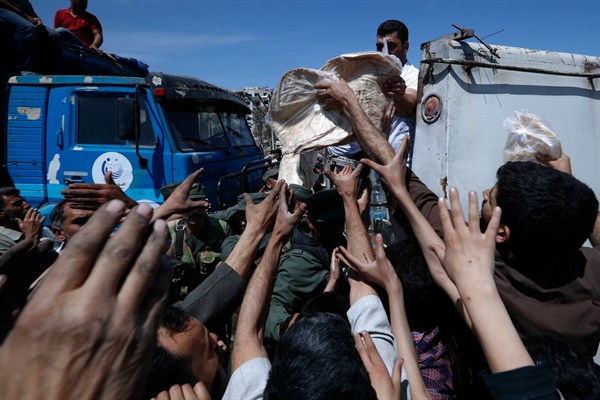Syrian President Bashar al-Assad is close to military victory over the rebels that he has been fighting since 2011. The largest remaining area of opposition control is Idlib province, and the regime is gearing up to retake it. Turkey and Russia developed a cease-fire plan last week to try and prevent further large-scale fighting, but it may not work. The future looks grim for the people of Idlib. Like Assad’s other offensives, if this one takes place it will be brutal, with civilians suffering as much as rebel fighters. And if past patterns hold, Syrian government forces will use whatever means they think will intimidate the people of Idlib into submission, including chemical weapons.
If that happens, the United States will once again have to decide what to do—or whether to do anything at all. Some commentators believe that the U.S. has a broad obligation to prevent the brutalization of civilians by the Assad regime. The Brookings Institution’s Michael O’Hanlon, for instance, has argued that Washington should “retaliate in the event of any indiscriminate use of violence by Assad against his own people, in a manner of our choosing.”
One of the problems with this idea—and there are many—is that the threshold for U.S. action is unclear. Conventional weapons like artillery, airstrikes and Assad’s favored barrel bombs kill the most civilians in Syria. Their use may not provide a legal basis for U.S. military action. To get around that, people like Rep. Adam Kinzinger define America’s interests more narrowly, contending that only the use of chemical weapons would justify direct U.S. action.

